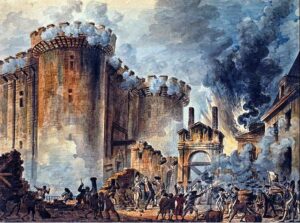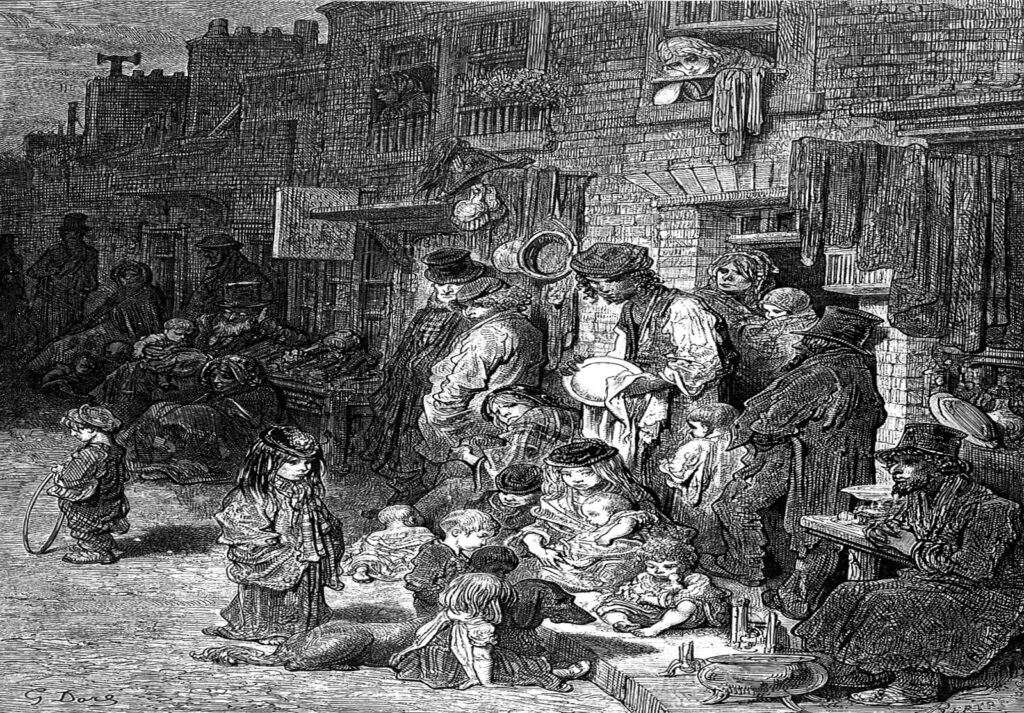Introduction
The principles of liberty, equality, and democratic rights fueled a yearning for change in the societies of other European nations during the French Revolution. The spread of these ideas throughout Europe gave people in other nations hope that they might speak out against their oppressive, autocratic rulers and motivated them to launch nationalist movements for social change in their nations. However, the concepts of social change varied throughout European nations. Some desired gradual social change, while others wished for radical reform of the social order.
Social Change
The French Revolution sparked a social upheaval that swept throughout the globe and gave rise to optimism for fundamentally altering how society was organised. Liberal, conservative, and radical political trends were all invited by the need for change in European society.
- Liberals: The group of people aimed to create a new society that would maintain equality between various religious sects and promote religious tolerance in the country. They opposed the hereditary rulers’ disproportionate influence. These liberals also felt that people’s rights should be preserved, and they called for an elected representative form of government free from the influence of rulers and higher officials in terms of how the law is interpreted by an impartial judiciary.
Liberals supported the principle of equality, but unlike Democrats, they never advocated for the universal adult franchise. Instead of women and members of lower social classes, they preferred that the ability to vote be restricted to the society’s propertied men (poor).
- Radicals: Another group in society that called for a change in the social order was the radicals, although they went about it completely differently than the liberals did. They desired that the majority of the populace elect the government. They supported the women’s suffragette movement, which advocated for the extension of voting rights to women.
Radicals questioned the advantages accorded to land and factory owners because they were opposed to the concentration of power in the hands of a small number of members of the affluent class and because this was causing inequality in society. In a sense, radicals desired to alter the underlying character of the social order.
- Conservatives: This group was made up of the ruling class, who at first rejected the “change” that liberals and radicals advocated in favour of the status quo, or that things should stay the same. However, with the French Revolution, they were willing to change, albeit slowly, and wished to save some of the traditional institutions in remembrance of the past. As a result, the nineteenth century saw a transformation in the ideological foundation for social development.

https://live.staticflickr.com/4316/35114899213_916b4abf5f_z.jpg
Image credit: Flickr
Social Change in Europe
European society underwent significant socio-economic development during the eighteenth century. This resulted from the Industrial Revolution’s expansion of industries, industrial districts, and railroads, which led to the emergence of new cities. On the one hand, this industrialization helped the European economy while also having an impact on society. As a result of this, people moved to newly established cities to work in factories. They were required to work long hours for meager pay. If the industrial job was seasonal or duration-based, unemployment became widespread, which also contributed to issues with sanitation and health.
Because some of these workers were also property owners and bosses, radicals and liberals consistently urged reform in response to the dreadful conditions in which they saw the workers. Instead of just the wealthy, they desired that all facets of society benefit from industrialization. They also thought that an educated and healthy workforce might boost the economy’s prosperity. But the old aristocracy and the Conservative government, which came to power in 1815, were causing them problems since they did not allow liberals and radicals to manage their companies as they desired. Therefore, revolutionaries from many European nations, including France, Germany, Italy, and Russia, attempted to remove the ruling monarchs.
Implications
The following were two significant effects of the social change in Europe throughout the nineteenth century:
The rise of nationalism: The idea of nationalism became more common due to the socioeconomic transformation in Europe. To better the welfare of the populace, new reforms were implemented. Now, nationalist movements are not exclusive to Europe anymore. It was in European colonies where social revolution first emerged.
The coming of socialism: In Europe, socialism began to gain ground because it believed that the existence of private property was the source of all societal ills. Properties and production factors were supposed to be owned collectively under this arrangement. They fantasized about living in a society without classes here. Socialists accused capitalists of being solely concerned with their profit and not at all concerned with the well-being of workers. Therefore, capitalism was viewed as abusing workers.
Summary
After the French Revolution, revolutionary concepts began to spread throughout Europe during the nineteenth century. People began speaking up to abolish the previous social order, in which authority was confined to a small number of socially favored groups. As a result, there was a surge of social upheaval in European nations. People demanded changes in society in various ways, which were known as liberal, radical, and conservative approaches. With the end of monarchies and privileged landowners, these changes ultimately resulted in the emergence of nationalism and socialism throughout Europe.
FAQ’s
1. What was the Industrial Revolution?
Ans. The construction of factories and machinery, together with widespread manufacturing, is referred to as the “Industrial Revolution.” It caused the shift from producing items manually to producing them using machinery.
2. Why did Radicals want a Fundamental Change in Society?
Ans. The radicals were people who belonged to the lower class and had long been taken advantage of by the ruling class. They, therefore sought to end the social stratification in which the lower classes were consistently denied any advantages.
3. What do you understand by Capitalism?
Ans. An economic system known as “capitalism” was one in which private organizations or individuals, as opposed to the government, owned the means of production and the industries.
4. “Social change is Necessary”. How far do you agree with this Statement? Explain.
Ans. Yes, I agree that “social change is important.” As can be seen from the social changes in Europe from the eighteenth to the nineteenth centuries, these changes significantly altered the social structures of those nations. This transformation is unavoidable, and getting rid of ineffective components, enables citizens to take the required stand against social injustice. In a nutshell, societal change empowers people so they can improve society for the coming generations.
